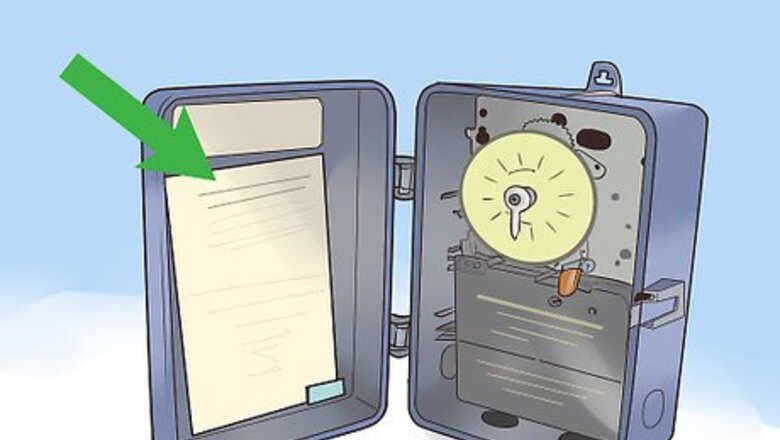
views
Setting Your Pump's Operating Time
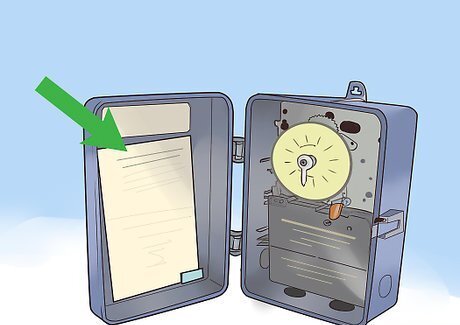
Locate the clock dial inside the timer box. Open your pool timer box and look for the clock dial—on most models, it's yellow in color with a small red or silver handle outstretching from it. On the clock-dial is a silver time pointer that points to the current time. Read your manufacturer's instructions to determine the parts of the dial.
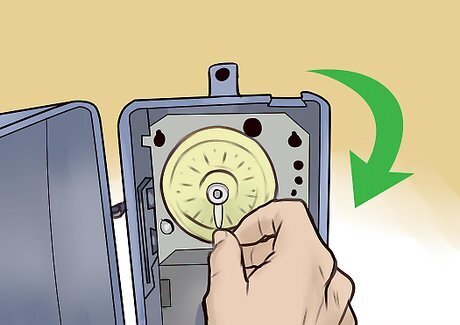
Pull the clock dial outward and turn it to the time of day. Grip the clock dial and gently pull it outward. Afterward, rotate the dial either clockwise or counterclockwise until the silver time pointer aligns with the time of day. Take note of the AM and PM times along the dial. For example, if it's 12 PM, rotate the clock dial until the silver time pointer aligns with 12 PM.
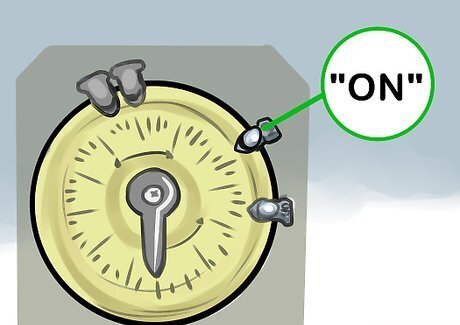
Locate the "On" tripper for your pool timer. The trippers are clipped to the timer and determine when your pool equipment turns on and off. On most models, the "On" tipper is green and contains an "On" label. In some pool timer models, the "On" tripper is silver.
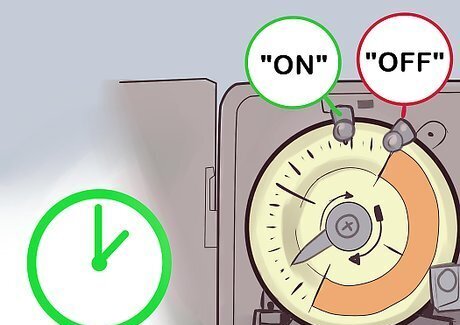
Attach the "On" tripper to the desired time on the clock dial. After finding the "On" tripper, locate the time on the clock dial that you want your equipment to turn on. Now, hold the tripper to this time on the clock dial and tighten the screw on the tripper until it's firmly attached. If you want to set your pool equipment to turn on at 8 AM, attach the tripper to this spot on the clock dial. Remember that the silver time point represents the current time and is separate from the tripper time.
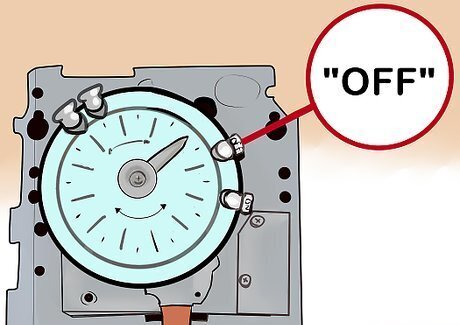
Find the "Off" tripper for your pool timer. The "Off" tripper will determine when your pool equipment turns off. Typically, this tripper is gold and labeled with "Off." Some pool timer models have silver "Off" trippers.
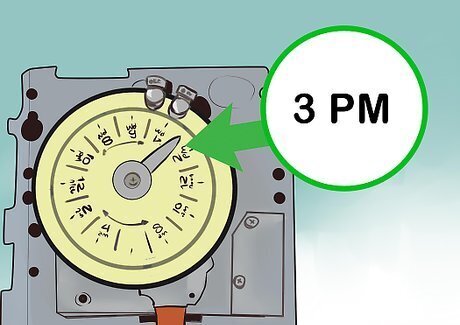
Connect the "Off" tripper to the desired time on the clock dial. Once you find the "Off" tripper, locate the time on the clock dial that you want your pool equipment to turn off. Afterward, hold the tripper to this time and tighten its screw until it's firmly connected. If you want your pool equipment to turn off at 3 PM, connect the tripper to this time on the clock dial. If your "On" tripper is currently at 8 AM, that means your equipment will turn on at this time and off at 3 PM.
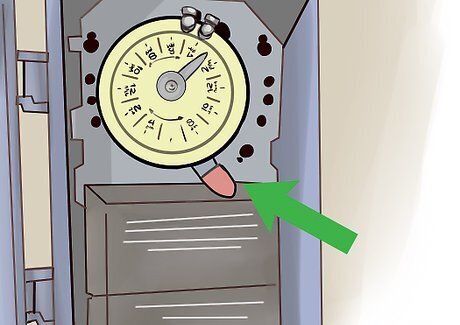
Flip the red or silver lever to override the current timer setting. The red lever extending from your clock dial can be used to do the opposite of your current setting. For example, if your timer is currently off and you want to turn it on, flip the lever to "On." Now, the timer will remain in this mode on until the silver time point reaches your "Off" tripper or you flip the red lever to "Off." Spray WD-40 behind the dial if your red override lever is hard to flip. If this doesn't work, you might have an insect infestation behind the time clock.
Using Your Timer to Optimize Your Pool Pump
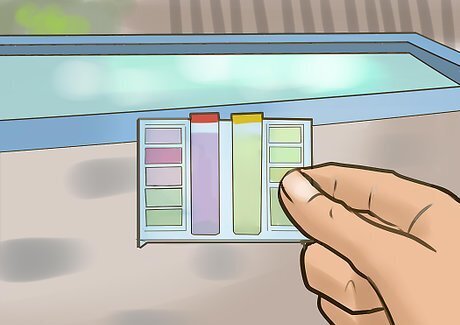
Check the chemical balance of your pool. Before using your timer to optimize your pump, you need to determine that your pool's pH, alkalinity, and calcium hardness are 7.4 to 7.6, 100 to 150 ppm, and 150 to 400 ppm, respectively. Use water testing papers to check these values and adjust them as necessary. To raise your pool's pH, add sodium carbonate or sodium bicarbonate. To lower it, add muriatic acid or sodium bisulfate. Add sodium bicarbonate to raise alkalinity and pH reducer or muriatic acid to lower it. Add calcium chloride to raise calcium hardness and muriatic acid to lower it.
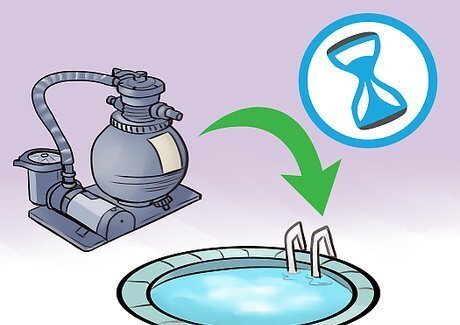
Run your pool filter at least 12 hours a day between 9 PM and 9 AM. In most cases, 12 hours a day is the minimum to keep your pool filter running. Depending on where you live, different times of day are most beneficial—contact your energy company and ask for optimal times. In most cases, 9 PM to 9 AM and the optimal times to run your pool filter since this is when people are using less energy.
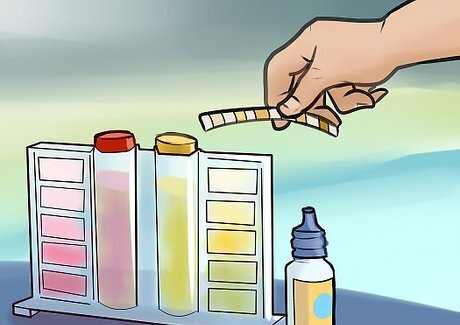
Check your pool's chemical balance the day after the first test. After letting your pump run for 12 hours, check its chemical balance again. If your pump is running for the proper amount of time, the levels should be the same. If they are less or more than the first test, record these differences. Test your pool's chemical balance 1 to 3 times a week.
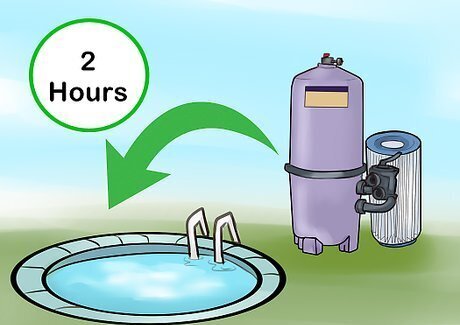
Reduce or increase your pool's filter time by 2 hours as necessary. In many cases, pool pump horsepower is more than necessary for pool size. If you find that your pump is pushing your pool water through in less time and causing lower chemical levels than required, remove 2 hours from your timer and run a chemical test again the next day. If it's causing higher chemical levels than required, add 2 hours and run a chemical test the next day. Keep checking your pool chemical balance and reduce or add time until you find the optimal runtime. Remember that optimal pump time can save you money on your energy bill.















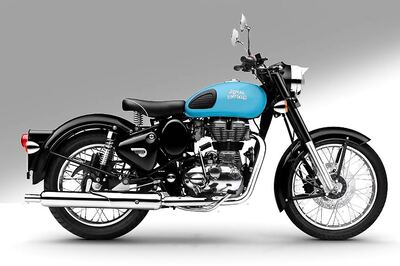




Comments
0 comment